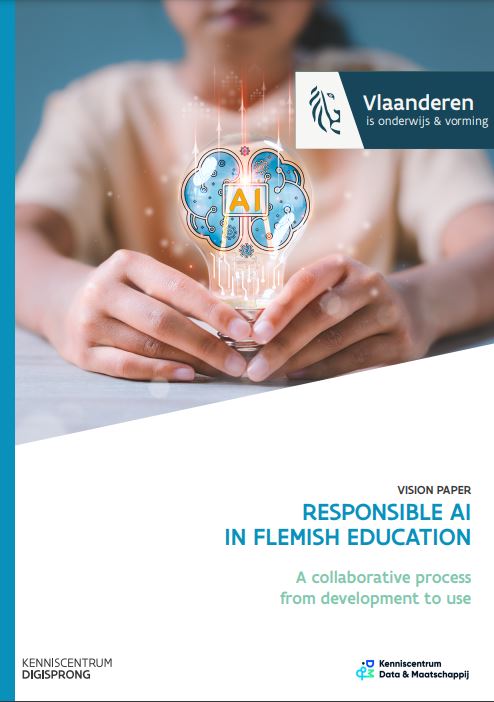
Responsible AI in Flemish education.
Vision paper - a collaborative process from development to use
Artificial intelligence (AI) offers numerous possibilities for education, such as making it more responsive to learners' needs, providing faster feedback, and automating administrative and repetitive tasks to some extent. However, if AI is not developed and used responsibly, it can negatively impact the learning process, user privacy, and teachers' professional autonomy.
To deploy and use AI responsibly in education, it is essential to strike a balance between the opportunities the technology offers and the potential risks it poses.
The vision statement serves as a catalyst for this, but it should not be viewed in isolation. It is the broader process of digitization in education that enables the responsible use of AI. Therefore, it is crucial to consider this vision within the context of ongoing digital transformation and to recognize the conditions needed for effective digitalization of education. Achieving responsible AI in education requires finding a balance between the technology’s potential and its possible adverse effects.
The Knowledge Centre Digisprong in Flanders has written a vision paper in collaboration with relevant stakeholders such students, teachers and unions, that provides a starting point for this discussion. In this document, the Knowledge Centre defines what is meant by responsible AI in education and outlines seven fundamental requirements that responsible AI must meet. These requirements are then developed into practical guidelines for implementation in the educational sector.
Author: Jana Op de Beeck